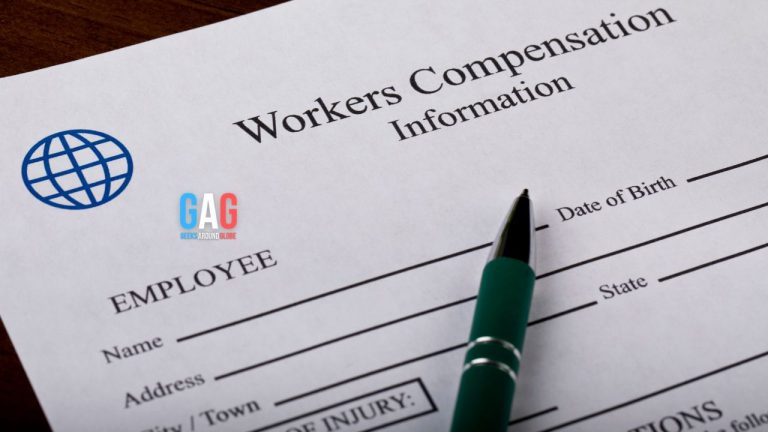- 1. Details of the Incident
- 2. Photographs and Videos
- 3. Police or Incident Reports
- 4. Witness Statements and Contact Information
- 5. Medical Records and Bills
- 6. Correspondence Related to the Incident
- 7. Proof of Loss Statements
- 8. Legal Documentation
- 9. Impact of Documentation on Claim Processing Time
- 10. Summary
Have you ever been puzzled about what you must document for a successful insurance claim? The right documentation is crucial for a smooth claim process, Whether due to an accident, property damage, or another unfortunate event. Knowing what to collect and present can significantly affect how quickly and effectively your claim is processed and settled. With guidance from professionals like Jackman Firm legal representation, navigating the maze of insurance claims becomes less daunting. This blog highlights the essential documentation to bolster your claim, ensuring you’re well-prepared for a successful outcome.
Details of the Incident
Recording every detail of the incident immediately after it occurs is paramount. The specifics, including the exact date, time, and location, along with a comprehensive description of how the incident unfolded, are invaluable. These details provide a foundation for your claim, offering a clear context and timeline of events. Including weather conditions, road conditions, or any other environmental factors can also be crucial, especially in cases where such elements may have contributed to the incident.
Photographs and Videos
Visual evidence stands as one of the most powerful tools in your claim. Photographs and videos can capture the extent of damage or injuries more eloquently than words alone. Ensure you take wide shots to establish context and close-ups to detail the damage or injuries. These images are irrefutable evidence that can corroborate your account of the incident, making it harder for insurance companies to dispute your claim.
Police or Incident Reports
A police or incident report is a third-party account that adds credibility to your claim. Such reports usually include an impartial perspective on the incident, often with an expert opinion on the cause or fault. For incidents not attended by police or other authorities, filing a report with the nearest police station can still provide an official record that substantiates your claim.
Witness Statements and Contact Information
Witnesses can offer unbiased accounts that may corroborate your version of events. Gathering this information promptly is crucial, as memories can fade over time. Written statements are best, but at minimum, collecting contact information allows your insurance company or legal representative to follow up for detailed accounts later, adding another layer of evidence to support your claim.
Medical Records and Bills
Documenting every aspect of your medical treatment post-incident is critical, especially for personal injury claims. Detailed medical records and associated bills provide a clear picture of the physical impact of the incident and the direct costs incurred for treatment. This documentation is essential for accurately quantifying your claim, ensuring you are compensated for the full extent of your medical expenses.
Correspondence Related to the Incident
Keeping a detailed record of all your interactions regarding the incident can help streamline the claim process. This includes saving emails, letters, and notes from phone calls with your insurance company, medical providers, or any other involved party. This log can later serve as a reference to track the progress of your claim and resolve any discrepancies or misunderstandings that may arise.
Proof of Loss Statements
A detailed proof of loss statement is indispensable for claims involving property damage or theft. This document should list all damaged or lost items, alongside their estimated value or replacement cost, supported by receipts, warranty cards, or photographs. A thorough and accurate proof of loss expedites the valuation process, aiding in a fair assessment of your claim.
Legal Documentation
Engaging with a legal team, like Jackman Firm legal representation, can significantly impact the success of your claim. Documenting your interactions and any legal advice received ensures you’re following expert guidance and preparing you for potential disputes. Legal professionals can also assist in gathering and organizing the necessary documentation, representing a valuable ally in the claims process.
Impact of Documentation on Claim Processing Time
Your documentation’s thoroughness can significantly impact your insurance claim’s processing time. Comprehensive and well-organized documentation provides insurance adjusters with all the information they need to assess your claim quickly and accurately. This can lead to faster claim resolutions and reduce the likelihood of back-and-forth requests for additional information.
Efficient documentation demonstrates a clear picture of the incident, injuries, and damages, facilitating a smoother and more streamlined evaluation process by the insurance company. Ensuring that your documentation is complete can expedite the overall claim process, helping you receive the compensation you’re entitled to without unnecessary delays.
Summary
The importance of thorough documentation in the insurance claim process cannot be overstated. From the initial details of the incident to legal correspondences, each piece of evidence plays a crucial role in establishing the validity and value of your claim. By meticulously gathering and organizing the necessary documentation, you empower yourself and your legal team to advocate for your rights, paving the way for a successful insurance claim.







